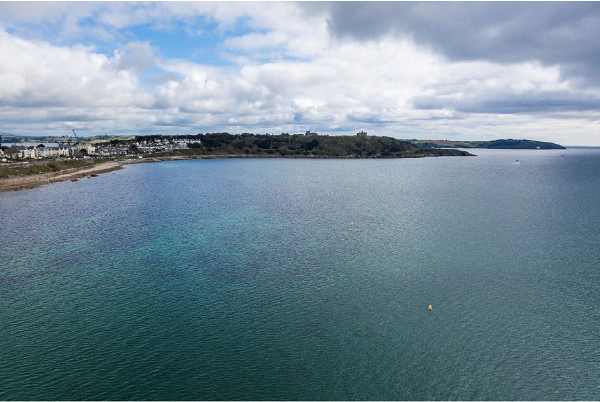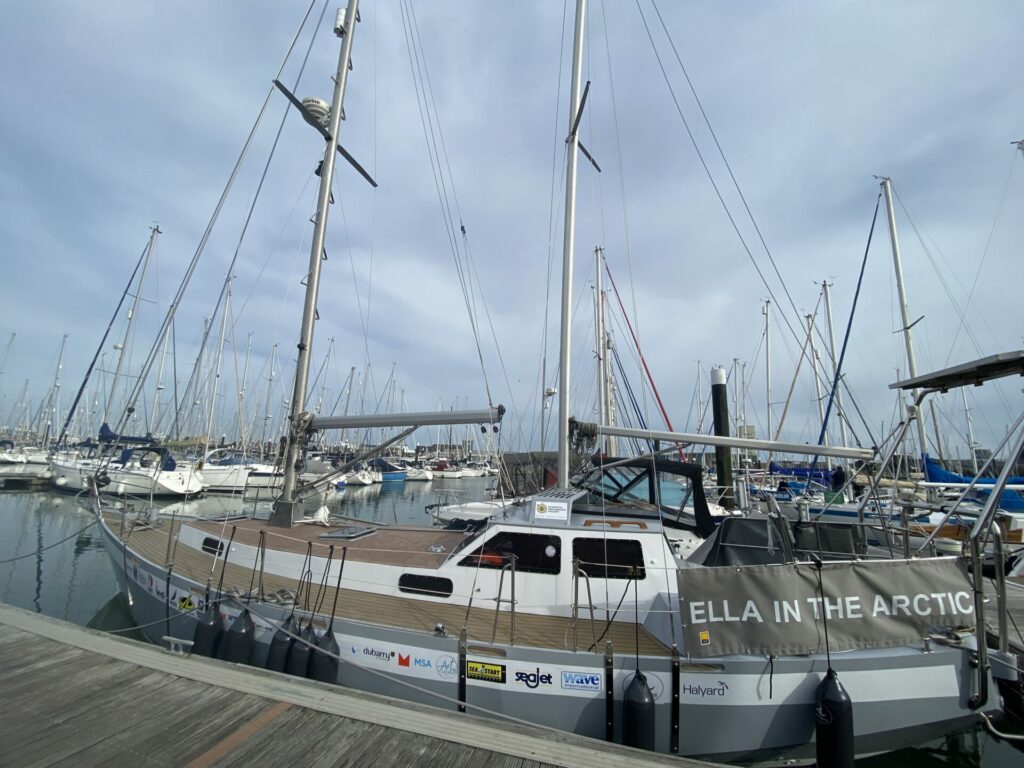Sensitive marine habitats of seagrass and maerl have been marked using buoys by Falmouth Harbour with the Ocean Conservation Trust and their main partners Plymouth Gin. Above the water a clear line of new marker buoys will show watercraft in Falmouth Harbour and Bay where sensitive areas of seabed are located.
Seagrass is deemed a wonder-plant, vital for marine life which depends on its meadows for food and shelter and vital to the health of our seas and the environment as it captures carbon up to 35 times faster than tropical rainforests. Yet a study by University College London estimates at least 44% per cent of the UK’s seagrass has been lost since 1936 with pollution, mining, and farming as well as dredging, bottom trawling, anchoring and coastal development all contributing to the decline.
“Boats anchoring over seagrass and maerl beds have a physical impact,” says Falmouth Harbour’s Environment Manager Vicki Spooner, “and since the vast majority of marine leisure users want to do their bit to protect the environment, we hope the new marker buoys will raise awareness of where the sensitive areas are.
“The buoys will replace the seasonal marks already on the water and have the dual impact of delineating to vessels where other activities are taking place as well as the sensitive seabeds. Specifically, along Falmouth’s Swanpool, Gyllyngvase and Castle beaches they’ll show where swimmers, kayakers and stand-up paddle boarders – are likely to be active and mark the 4-knot limit. These additional buoys should really help with managing safety in Falmouth Bay.”
Mark Parry from the OCT says, “We are delighted to be working with Falmouth Harbour and Plymouth Gin on what is the first of a number of seagrass protection and regeneration schemes the Ocean Conservation Trust has planned for this year. As part of our holistic approach, we will also be monitoring the biodiversity within the seagrass and maerl beds, taking a baseline measurement at the start and measuring the impact over the 3 year project. Our aim is to protect 700 Ha of UK seagrass over the next 5 years.”
Toni Ingram, Global Brand Director for Plymouth Gin, says: “We are proud to be partnering once again with the Ocean Conservation Trust to help protect and regenerate such a valuable habitat in Falmouth Harbour. The ocean is integral to Plymouth Gin’s history, having been hand-crafted on the South West Coast in England’s oldest working gin distillery since 1793.”
Falmouth Harbour CEO Miles Carden says, “We are really excited about this project as it will help Harbour users to understand where the Seagrass is, start a conversation about how we can change behaviours to help Seagrass thrive: we hope marking the areas of seagrass and maerl will encourage harbour users to approach us with ideas on how we can continue to enjoy the beautiful harbour whilst reducing impacts on sensitive ocean habitats that we know are a really valuable assets to us all. I must also thank Plymouth Gin the project sponsors for their support on this important initiative, their foresight has made this possible.
For guidance on anchoring and general good practice for leisure users at sea, visit Anchoring with Care. For detailed information on the work and services of Falmouth Harbour, including updates and FAQs on this and other environmental initiatives see www.falmouthharbour.co.uk or call the Falmouth Harbour team on 01326 213537.




